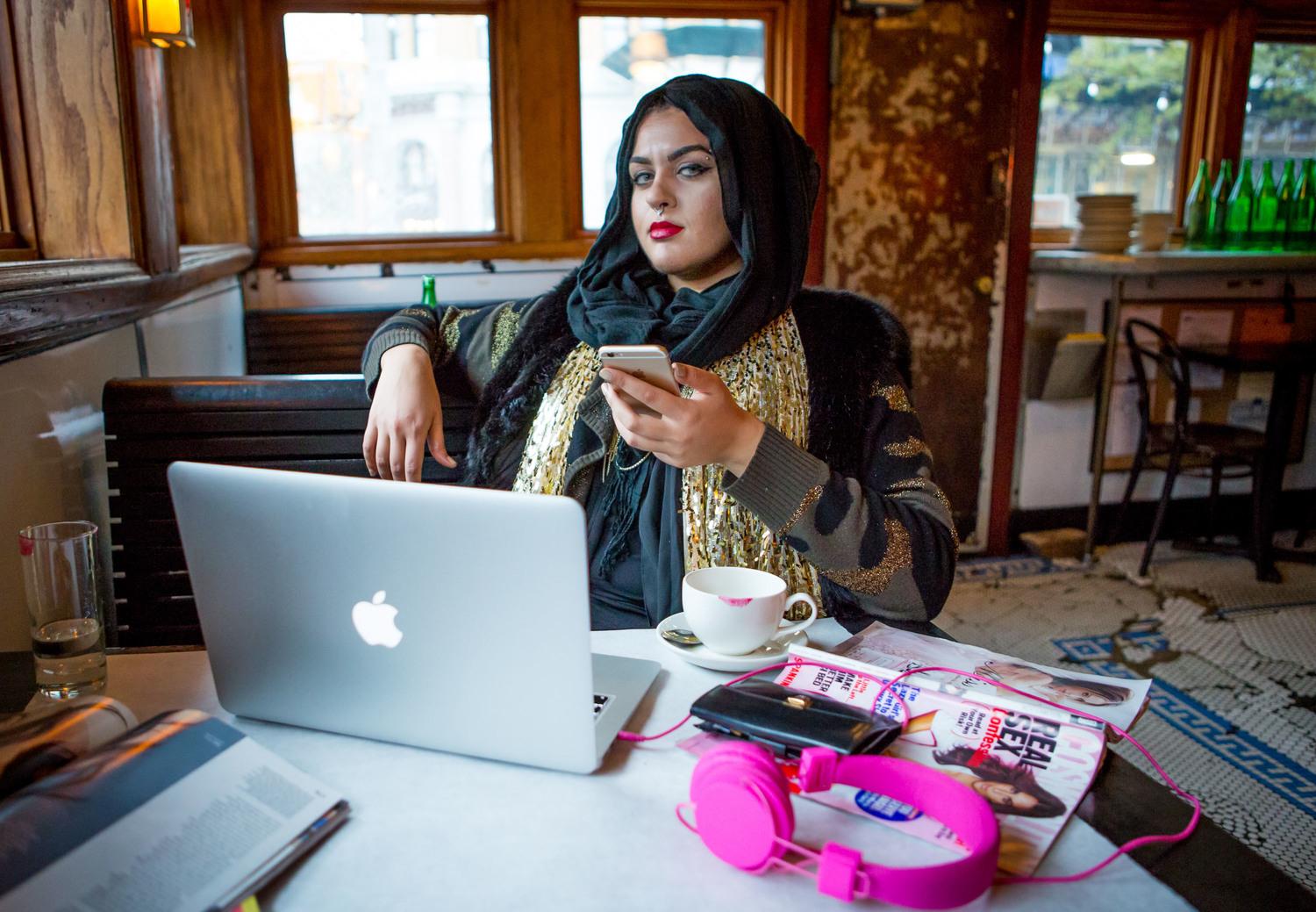Amani Al-Khatahtbeh, the creator of muslimgirl.com.
Amani Al-Khatahtbeh remembers the first time she was called a racial slur. It was after Sept. 11, and she was 9 years old.
"I remember going straight to my guidance counselor and telling her, 'Every single kid in my class is attacking me,'" she says. "My guidance counselor said, 'Well, if everyone feels that way, then maybe you need to change.'"
It was a lot to absorb for Khatahtbeh, who describes herself as a "Jersey Girl through and through." She knew all the boy bands, she says, followed Brittany Spears and Christina Aguilera. "I watched every single episode of the 'Jersey Shore.' I was listening to Hot 97 from second grade," she says, referring to the area's popular hip-hop radio station.
Khatahtbeh, whose parents are Muslim and from Jordan, also remembers her father's electronics store being targeted by a local petition.
"Immediately after 9/11, another vendor created a petition to kick out all the Muslim vendors," she says. "They would come to my dad’s store, right in front of me, harass him, call him names." Their house started getting egged and water ballooned.
"I decided that I wanted to wear a headscarf as my public defiance of Islamophobia," says Khatahtbeh. "Right off the bat, my friends just stopped communicating with me altogether."
Instead of being at the water park or the beach with friends, Khatahtbeh spent a summer learning HTML, coding and creating what would become MuslimGirl.com.
"One of the first blog posts on MuslimGirl was about your period," says Khatahtbeh. "Things that seem taboo or conversations that seem hidden away for most of our lives, were things that we just opened up about."
Today, it's a wildly popular website, staffed up and collaborating with Teen Vogue. Khatahtbeh has also published a book and was recently named one of Forbes 30 Under 30 people in the media to watch.
"Now, this little thing that I started in my bedroom when I was a teenager, has really grown to take on a life of its own," she says.
Khatahtbeh tells her story in the video below, part of a digital series by filmmaker Joshua Seftel called "The Secret Life of Muslims." To see more stories from the series, a partnership with Vox, head here or check them out on Facebook.
